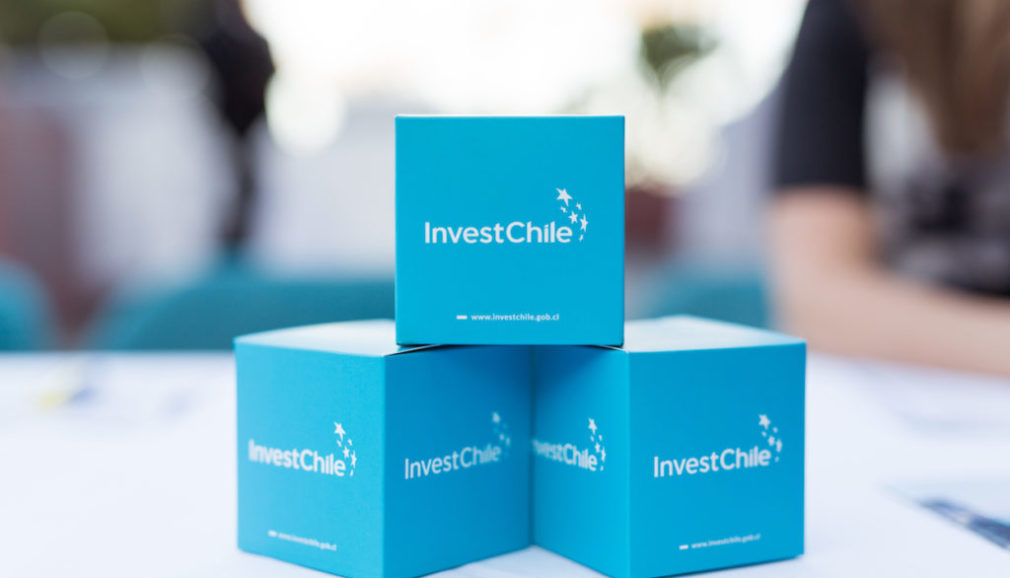RIO DE JANEIRO, BRAZIL – InvestChile, the Foreign Investment Promotion Agency, reported that foreign direct investment (FDI) arrivals between January and May 2022 reached US$9.6 billion, according to the Central Bank of Chile.
The amount is 11% lower than that reached in the same period of 2021 due to a high comparison base due to acquisition transactions that took place in February 2021. Likewise, the accumulated figure is 60% higher than the historical average of the 2003-2022 series (US$6 billion) and 17% above the average of the last five-year period (US$8.2 billion).
In May of this year alone, FDI inflows reached US$1.8 billion, much higher than the figure in May 2021, when a negative amount of US$648 million was registered. The amount also exceeds the US$1.2 billion average of the last 12 months.

By components, the one that stood out the most in the first five months in the flow of FDI was the reinvestment of profits, totaling US$4 billion. Equity investments amounted to US$3.2 billion, and debt instruments to US$2.4 billion.
When asked about the flow, the Minister of Economy, Development, and Tourism, Nicolás Grau, pointed out that “it shows that foreign investment has not stopped in the country; however, there is still a long way to go in terms of investment and public-private coordination”.
He added, “these figures show Chile’s capacity – beyond one-off operations – to regularly attract investment in amounts higher than before the pandemic. It is not only a reflection of the image that Chile has with investors, but also of the confidence that international companies have in our development in the medium and long term, and their willingness to reinvest and expand their operations in the country,” she said.
The director of InvestChile, Karla Flores, an organization recently awarded in Madrid by the Chile-Spain Foundation, said that “the figures are a good sign of the dynamism of foreign investment and corroborate the high interest that companies have in continuing to develop business in Chile, which is something that as an agency we appreciate constantly.”
“I especially appreciate that this result is also given in a context of high uncertainty in global markets. For us, it is an invitation to continue working to attract investments that positively impact the economy, especially job creation,” Flores added.
The Agency is implementing a new strategy in its work divided into three areas: a) positioning foreign investment as an economic policy tool at the service of the national development strategy; b) ensuring that Foreign Direct Investment (FDI) and its benefits play an effective role in solving the urgent needs of Chileans; c) positioning Chile as a hub of opportunities for investment in the future.
Flores says, referring to these axes, “the first will be achieved through the articulation in the State with ministries, services, and regional governments, with a long-term view of the country, which allows us to incorporate the private world and guide our work and coordinated efforts towards sectors in which investment can make a difference.”
“Secondly, we are talking about opening and strengthening channels throughout the territory to take better advantage of investment benefits. And on the third point, we want to take advantage of the special characteristics that make it a natural laboratory of excellence to be a test market for technological, inclusive, and green investment,” she added.
During the pandemic in 2021, InvestChile carried out 115 activities in 23 different countries to promote investment opportunities. The portfolio increased by 25.1%; they managed and supported 486 projects in different stages of development for more than US$27 billion, associated with creating more than 20 thousand permanent jobs, 37% more than in 2020.
“As in 2020, more than 85% of these activities were carried out remotely, which required strengthening our work to identify companies with investment potential and coordinated work with the State’s external network,” said Flores. There was a diversification of investment countries and the year ended with the management of projects from 49 countries.
She highlighted the work through digital marketing from the “country at the end of the world,” InvestChile has been a pioneer among global foreign investment promotion agencies.
They developed 187 digital campaigns that allowed 30 new projects for more than US$1.5 billion to enter the country. These figures translate into 1 in 4 projects coming from digital marketing compared to 1 in 22 initiatives from the same channel four years ago.
Karla Flores acknowledged, “even though our 2021 results were positive, the challenges for the agency are extremely important this year when locally we face a post-pandemic scenario, where job recovery is a priority and all this in a complex international context,” she stressed.
She commented that “we will continue working to attract more and better foreign investment to the country, which will contribute to our economy, generate new opportunities, improve the quality of life of our people, and allow us to leap towards a sustainable and inclusive future.”
Chile must continue to offer institutional stability, legal security, certainty, economic strength, and physical and technological infrastructure to promote new ventures. It has already worked well in the recent past, and of course, it can be improved without losing what has been achieved so far.
With information from El Economista

